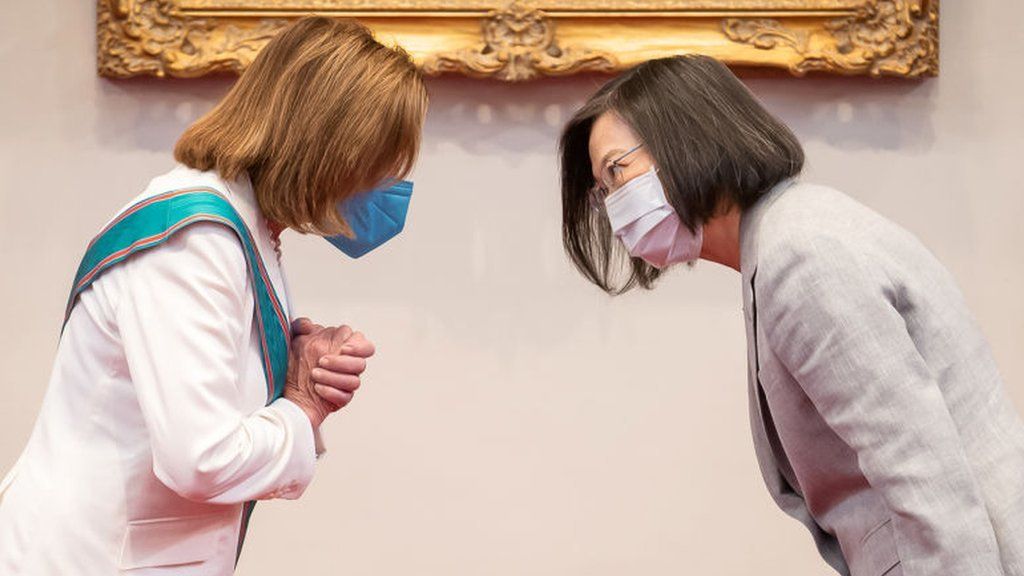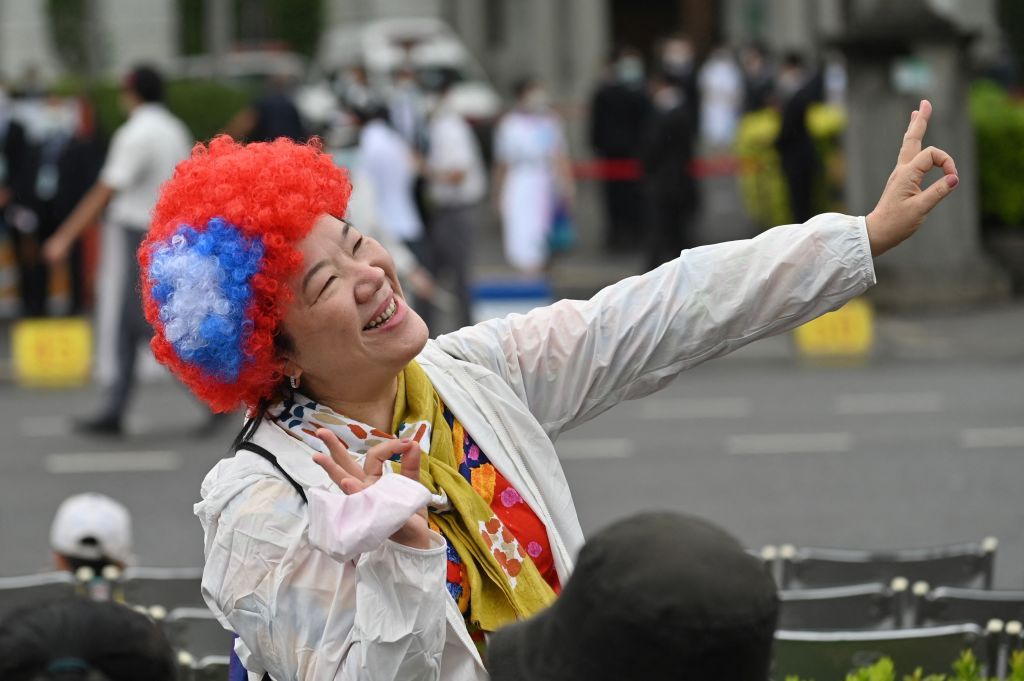
Taiwan today is marking “Double Ten”or 10 October, the self-ruled island’s national day.
The annual celebration is especially significant this year – tensions with Beijing, which claims Taiwan as its territory are at an all-time high; and China’s leader Xi Jinping, who has been particularly vocal about “re-unification”, is set to get a third term at a historic Communist Party meeting next week.
Ironically 10 October has nothing to do with Taiwan or any moment in its history. It, in fact, marks the day in 1911, when an uprising began in Wuchang in central China that eventually led to the collapse of the last imperial dynasty – and the establishment of the Republic of China.
So why is Taiwan celebrating the day? Because the island’s official name is still The Republic of China on Taiwan. The flags flying across Taipei today are still of the white star on a blue and red background.
It’s a peculiar legacy of the Chinese civil war. In 1949 the defeated nationalist regime of Chiang Kai-shek fled across the Taiwan strait to Taipei. For decades Chiang held Taiwan in an iron grip, while continuing to proclaim his regime “the true democratic government of Free China”.
Today all of this seems slightly absurd – and for so many Taiwanese, especially the younger generation, it is.
Hanny Hsian, a 38-year-old flight attendant who lives in Taipei with her American husband and two children, typifies that change.
“My grandparents are from China and they’re still Chinese patriots,” Hanny says. “But for me, I was born and raised in Taiwan, I have no doubt that I am Taiwanese. China is not our motherland. China never owned Taiwan. Some people escaped from China to Taiwan. But that doesn’t mean they own this island.”
Hanny is far from alone. Opinion polls this year suggest that 70% to 80% of people here now consider themselves “Taiwanese”. That is a significant increase from a decade ago, when around half the population still said they were “Chinese”.
This trend has not gone unnoticed in Beijing, and it is retaliating.
Since US House Speaker Nancy Pelosi landed here in August there’s been a lot of talk about how long it could be until China invades Taiwan. What’s less talked about is the economic squeeze already underway.
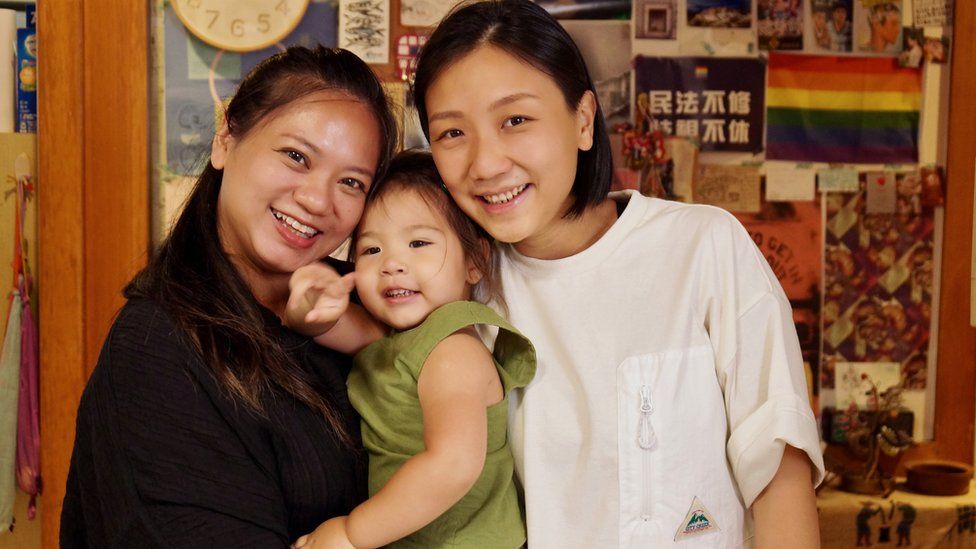
China is a massive market for Taiwan, particularly for its food industry. Drive along the southwest coast, just south of Tainan, and it’s hard to tell where the land ends and the sea begins. Vast areas of farmland have been turned into huge saltwater ponds. It’s not pretty but beneath the surface of the muddy ponds lies treasure.
Su Guo-zhen is emptying bucketloads of sardines into one of his ponds. The water is foaming as dozens of huge fish thrash and jostle to get to the food. These are Grouper – there are hundreds of them in Su’s pond.
“I wouldn’t put your foot in the water!” he says, chuckling. “They’re extremely territorial and very aggressive”.
They are also very expensive. On the tables of Shanghai and Beijing, a fully grown Grouper can fetch $2,000 (£1,250). Until this summer around 80% of the Grouper raised in Taiwan went to China. Now it’s down to zero.
“China is the best market for these fish” Su says. “They eat them at banquets and celebrations. It’s very popular.”
But since China banned imports in June, he adds, mainland buyers have stopped ordering from Taiwan, raising fears of a crash in prices.
Su, however, says there has been a change in attitude: “Older fish farmers like me are nervous. But young farmers are not worried. They think, fine if China doesn’t buy, we will sell to other markets around the world which have Chinese populations.”
Su’s daughter and son-in-law are now doing just that, marketing his Grouper in Singapore, San Francisco, and Vancouver. Taiwan’s pineapple farmers are shipping this year’s crop to Japan.
It’s a hard transition. Like Europe’s dependence on Russian gas, Taiwan’s over-reliance on China’s vast market has made it vulnerable.
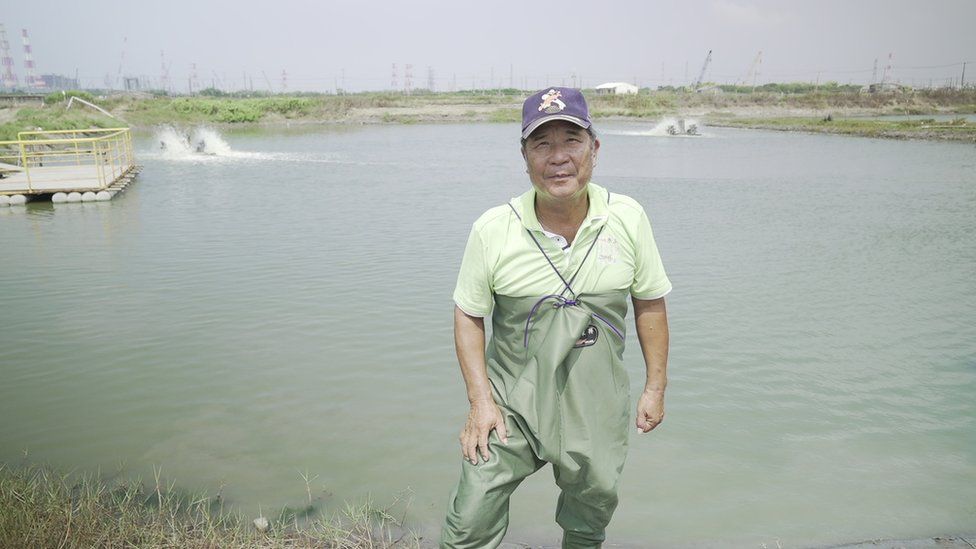
But if Beijing thought economic pressure on Taiwan would work, it appears to have backfired. Around half of the island’s population now supports formal independence, even under threat of attack from China. A poll last year showed 75% of Taiwanese say they would fight a Chinese invasion.
This growing sense of identity is accompanied by a growing sense of pride in Taiwan’s own story – of its hard-won democracy and its remarkable transformation into one of Asia’s most open societies.
To them, the threat from China is not just a threat to Taiwan’s political leadership. It’s a threat to all the rights and freedoms its people enjoy.
It’s the only place in Asia where gay marriage is legal.
“Being gay used to be something you kept under the table,” says Mota Lin. “But now we are out in the open. And people’s attitudes have changed now that the government has accepted and recognized us.”
She lives in southern Taipei with her partner City Chen and their adorable two-year-old daughter Lin-chen. The apartment’s walls are covered with family photos. The floor is a jumble of toys. The unalloyed joy of these two young women at becoming parents is infectious. City is now pregnant with their second baby.
She is the younger of the two, and more passionate about her Taiwanese identity. Anger flashes across her eyes at a question about the threat to Taiwan from China.
“We are an independent, sovereign state” she says. “If China wants to take Taiwan, it will have to stage a war, like Russia in Ukraine. If war comes our priority will be the safety of family. So, we may have to leave.”
It’s an awful possibility. But for Mota Lin, City Chjen, Su Guo-zhen, Hanny Hsian and the other 23 million people of Taiwan, the stakes could not be higher.
Over the last three decades, they have created something rather extraordinary here. It is something they can justly and proudly celebrate today. And it’s something they have no intention of giving up, whatever the threats from Beijing.
-
-
2 August
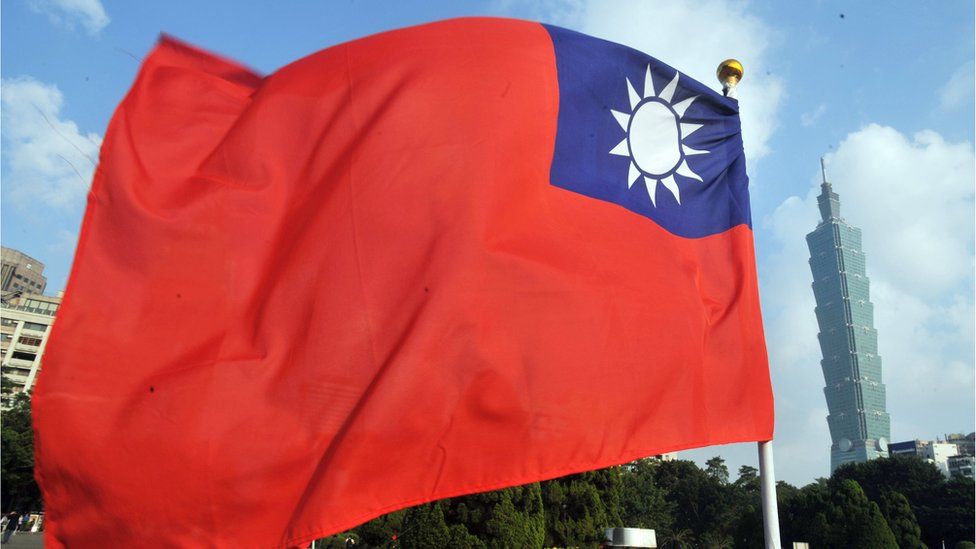
-


